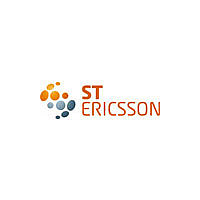ISP1161A1BMGA STEricsson, ISP1161A1BMGA Datasheet - Page 29

ISP1161A1BMGA
Manufacturer Part Number
ISP1161A1BMGA
Description
Manufacturer
STEricsson
Datasheet
1.ISP1161A1BMGA.pdf
(137 pages)
Specifications of ISP1161A1BMGA
Operating Temperature (max)
85C
Operating Temperature (min)
-40C
Operating Temperature Classification
Industrial
Mounting
Surface Mount
Lead Free Status / RoHS Status
Compliant
Available stocks
Company
Part Number
Manufacturer
Quantity
Price
Company:
Part Number:
ISP1161A1BMGA
Manufacturer:
EPCOS
Quantity:
6 700
Company:
Part Number:
ISP1161A1BMGA
Manufacturer:
ST-Ericsson Inc
Quantity:
10 000
Table 5.
ISP1161A1_5
Product data sheet
Symbol
DirectionPID[1:0]
B5_5
Format
FunctionAddress[6:0]
Proprietary Transfer Descriptor (PTD): bit description
9.4.1 Partitions
9.4 HC internal FIFO buffer RAM structure
According to the Universal Serial Bus Specification Rev. 2.0, there are four types of USB
data transfers: Control, Bulk, Interrupt and Isochronous.
The HC’s internal FIFO buffer RAM has a physical size of 4 kbytes. This internal FIFO
buffer RAM is used for transferring data between the microprocessor and USB peripheral
devices. This on-chip buffer RAM can be partitioned into two areas: Acknowledged
Transfer List (ATL) buffer and Isochronous (ISO) Transfer List (ITL) buffer. The ITL buffer
is a Ping-Pong structured FIFO buffer RAM that is used to keep the payload data and their
PTD header for Isochronous transfers. The ATL buffer is a non Ping-Pong structured FIFO
buffer RAM that is used for the other three types of transfers.
The ITL buffer can be further partitioned into ITL0 and ITL1 for the Ping-Pong structure.
The ITL0 buffer and ITL1 buffer always have the same size. The microprocessor can put
ISO data into either the ITL0 buffer or the ITL1 buffer. When the microprocessor accesses
an ITL buffer, the HC can take over the other ITL buffer at the same time. This architecture
improves the ISO transfer performance.
The HCD can assign the logical size for the ATL buffer and ITL buffers at any time, but
normally at initialization after power-on reset. This is done by setting the
HcATLBufferLength register (2BH to read, ABH to write) and HcITLBufferLength register
(2AH to read, AAH to write). The total buffer length cannot exceed the maximum RAM
size of 4 kbytes (ATL buffer + ITL buffer).
FIFO buffer RAM. When assigning buffer RAM sizes, follow this formula:
ATL buffer length + 2 × (ITL buffer size) ≤ 1000H (that is, 4 kbytes)
where: ITL buffer size = ITL0 buffer length = ITL1 buffer length
The following assignments are examples of legal uses of the internal FIFO buffer RAM:
Access Description
R
R/W
R
R
•
•
ATL buffer length = 800H, ITL buffer length = 400H.
This is the maximum use of the internal FIFO buffer RAM.
ATL buffer length = 400H, ITL buffer length = 200H.
This is insufficient use of the internal FIFO buffer RAM.
00 — SETUP
01 — OUT
10 — IN
11 — reserved
This bit is logic 0 at power-on reset. When this feature is not used, software used for the
ISP1161A1 is the same for the ISP1160 and the ISP1161. When this bit is set to logic 1 in
this PTD for interrupt endpoint transfer, only one PTD USB transaction will be sent out in
1 ms.
The format of this data structure. If this is a Control, Bulk or Interrupt endpoint, then
Format = 0. If this is an Isochronous endpoint, then Format = 1.
This is the USB address of the function containing the endpoint that this PTD refers to.
Rev. 05 — 29 September 2009
…continued
Figure 26
USB single-chip host and device controller
shows the partitions of the internal
ISP1161A1
© ST-ERICSSON 2009. All rights reserved.
29 of 137












